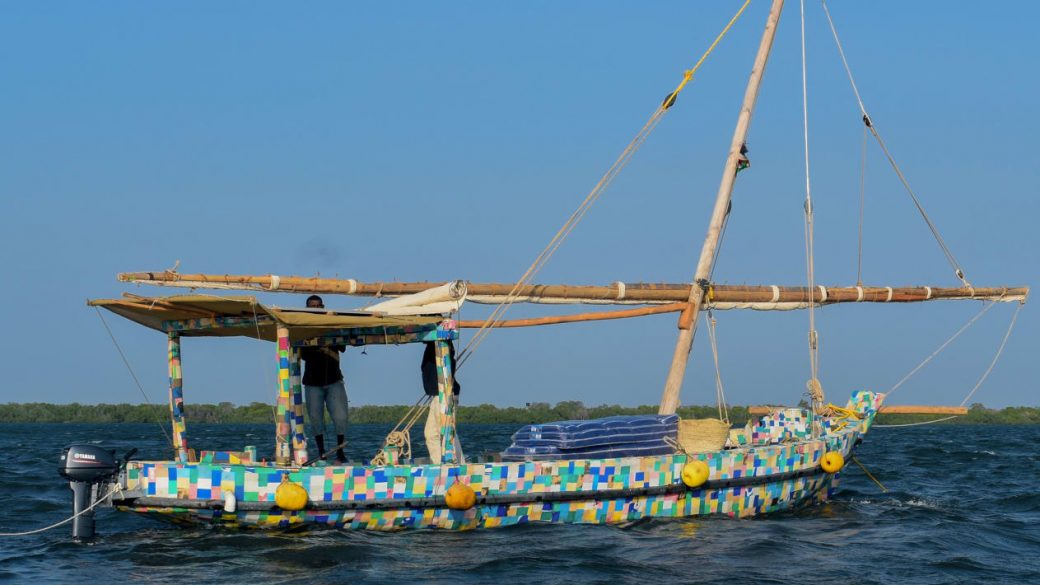How A Team From Kenya Built The World’s First Plastic Dhow
(CNN) — The traditional dhow is made from wood, but an ambitious new project is making waves in the waters of East Africa.
A Dhow made entirely from recycled plastic aims to go on at least two expeditions this year.
Its first voyage from the Kenyan island of Lamu to Stone Town in Zanzibar, Tanzania, began this month.
Dubbed the FlipFlopi Project, the dhow will make several stops in towns and cities along its 500 km route to spread a “plastic revolution” to the coastal communities of Kenya and Tanzania, according to Dipesh Pabari, the project’s team leader.
Pabari said the FlipFlopi Project aims to engage and raise awareness to local communities along the route on the dangers of single-use plastics and to teach them how to recycle their plastic.
“The main aim is to build on the story of this plastic revolution and to continue to highlight to the world that single-use plastic items are dreadful,” Pabari told UN Environment.
How the Dhow Is Made
The rainbow-colored FlipFlopi dhow is 9 meters long and made from discarded plastics picked up during regular clean-ups of the ocean.
It is the first Dhow made entirely from recycled plastic.
The boat was built on Lamu island in its entirety by Ali Skanda, the chief boat builder who also works as a project leader alongside Pabari, and a crew of volunteer crew members.
Pabari says this makes the project distinctly African.
“It is so important that this is an African story because Africa is one of the few continents left that hasn’t necessarily gone the whole way towards a consumption-led society yet,” Pabari says.
The FlipFlopi Project is supported by the UN Environment and the Kenyan government in its latest effort to combat plastic pollution.
In 2017, the government imposed the world’s most stringent ban on plastic bags, with anyone caught producing, selling, or using them, risking imprisonment for up to four years or fines of $40,000.
Kenyans use about 24 million plastic bags monthly, according to an estimate by The United Nations Environment Programme (UNEP).
Many of these plastics end up polluting the oceans and filling the stomachs of sea animals with waste until they starve to death.
More Plastic Pieces Than Fish
According to the UNEP, the fish in the oceans will be outnumbered by pieces of plastic, threatening marine ecosystems, wildlife, and tourism by 2050.
The Kenyan government imposed the ban to protect the beach resorts along its coastlines that are popular among tourists.
Tourism is a top foreign currency earner for Kenya, with almost $3 billion in direct contribution to the country’s GDP according to a 2018 forecast by The World Travel & Tourism Council (WTTC).
Pabari says the FlipFlopi Project team will hold events in towns along their routes, meeting with schoolchildren, government officials and people in the local communities.
“We’ll be holding recycling workshops, teaching people simple things, like how to make rope out of plastic bottles using very rudimentary technology,” he said.
Courtesy Of CNN
